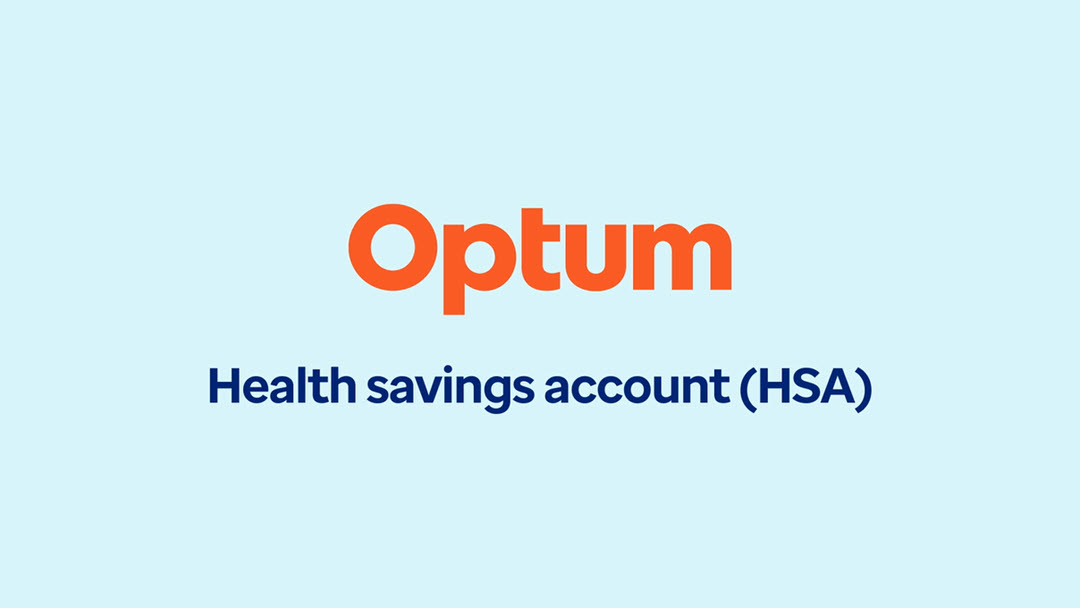New to an HSA? Learn the basics
An HSA is a tax-advantaged account that helps you pay for qualified medical expenses. The funds are yours to keep — regardless if you retire, change jobs or change health plans.
Tax savings
An HSA provides triple tax savings — contributions are not taxed in most states, account growth through interest and investment earnings are not taxed, and withdrawals for qualified medical expenses are income tax free. It’s a win-win to save on health costs today, tomorrow and even through retirement.
Pay the easier way
Your Optum Financial payment card is a fast and convenient way to pay for qualified expenses while skipping the paperwork. From trips to the doctor to everyday care like cold medicine and first aid kits, simply pay using your HSA card and you’re all set. Plus, you’ll save up to 30% because you’re using pretax dollars.*
The Optum Store
Use your HSA dollars
The Optum Store makes it easy to find what products and services are eligible.
Check out using your Optum Financial payment card and skip the paperwork. Use code QLCM15 to receive a 15% discount.** Plus, you save up to 30%* because you’re using pretax dollars.


Fund your HSA
Boost your balance
Contributing to your HSA is hassle free and tax free. Plus, it’s always on your terms, giving you a health expense cushion when you need it.

Use your HSA dollars
What can I buy?
Does your expense qualify? Use our search tool below to find out what expenses you can spend your HSA dollars on.
Frequently asked questions about your HSA
If you’ve got a new HSA, browse our new account holder checklist to get off to a good start.
You can also visit Qualcomm's resource library for videos and other educational materials to help you make the most of your HSA.
To be eligible to open an HSA, you must have a qualifying high-deductible health plan (HDHP), and meet IRS guidelines for the annual deductible and out-of-pocket maximum.
You also cannot be:
- Covered by any other health plan that is not an HDHP
- Currently enrolled in Medicare or TRICARE
- Claimed as a dependent on another individual’s tax return
- A recipient of Department of Veterans Affairs (VA) benefits within the past 3 months, except for preventive care. If you are a veteran with a disability rating from the VA, this exclusion does not apply.
It’s easy to find qualified HSA products at your favorite retailers. Simply use our qualified medical expense tool. Pay with your HSA card every time for faster payouts and less paperwork. Plus, you save up to 30%* because you’re using pretax dollars.
There are 3 ways to make a contribution to your HSA:
- Set up recurring contributions — Sign in to your account to set up recurring contributions to ensure you’re contributing the maximum allowed by the IRS each year.
- Make a one-time contribution — If you haven’t contributed the maximum allowed by the IRS, you can make a one-time contribution to your account at any time.
- Set up payroll deductions through Qualcomm.
The IRS sets guidelines for how much you can contribute to an HSA each year. To learn more about the annual HSA contribution limits, visit our HSA contribution limits page.
Sign in to your account today and check your contribution limit
No. You can keep your account, and the money in it remains yours, no matter what, even if you change jobs or move off a qualifying high-deductible health plan.
No. You can open and contribute to an HSA at age 65 or later as long as you meet HSA eligibility requirements, which are:
- You’re covered on an HSA-qualified medical plan.
- You’re not someone else’s tax dependent.
- You don’t have any conflicting coverage (including enrollment in Medicare). Turning age 65 does not, in and of itself, preclude you from remaining HSA-eligible absent any disqualifying coverage.
You currently have diverse investment options in your HSA, including digitally managed investments from Betterment, self-directed mutual funds and self-directed brokerage through Schwab. You can choose to invest based on how experienced you are and how involved you want to be in selecting your investments.
I want help investing and don’t want to spend a lot of time managing my portfolio. Can I get help investing?
You may choose to have Betterment manage your investment funds. Betterment is an independent online investment advisor and combines low-cost, tax-efficient investment strategies with technology and personalized advice to help you pursue your financial goals.
Once you answer a few brief questions about your investment goals and priorities, Betterment will build a personalized portfolio of exchange-traded funds (ETFs) with investment mixes and risk levels that are suitable for you.
I have some investment experience and prefer mutual funds. Can I choose my own investments?
You may choose from a number of preselected mutual funds from nationally recognized fund families. These have been selected to offer a broad and diverse range of investment objectives, with high Morningstar ratings and some of the lowest expense ratios in the industry.
I am an experienced investor and want to align my 401(k) investments with my HSA investments. Can I have some added flexibility?
You may choose to invest with the Schwab health savings brokerage account (HSBA). This robust option is for savvy investors who want more flexibility and control over their investments.
Assigning a beneficiary ensures that your HSA funds are transferred according to your wishes in the event of your death. If you do not assign a beneficiary, the funds will default to your surviving spouse or domestic partner, if you have one, or to your estate.
To add a beneficiary to your HSA, follow these steps:
- Sign in to your Optum Bank account.
- Go to "Settings" and select "Beneficiaries" from the dropdown menu.
- Select "+ Add New Beneficiary" and complete the online form.
If you prefer, you can add a trust or estate as a beneficiary using a paper beneficiary form. For non-spouse beneficiaries, the HSA death distribution will be reported in their name and SSN. For an estate or trust beneficiary, the distribution must be reported using the entity’s tax identification number (TIN). Since HSAs are tax-advantaged accounts, a tax ID or SSN is required.
We’re here to help
Whether you’ve just opened your HSA or you’re preparing to retire, our resources make it easy to save, pay and invest your HSA dollars.

Video
What is an HSA?
Watch this video to learn about the advantages and the purpose of an HSA and how it works.
Transfer your HSA
It’s easy to combine your HSA funds into one account
How to use your HSA
Learn how to make deposits to and withdrawals from your HSA
HSA contribution limits
Take advantage of your HSA’s tax benefits by contributing the maximum
*Savings compares using pretax income in your health benefit account (HSA, FSA) to using after-tax income for purchases and assumes a 30% combined tax rate from all applicable federal, state, and FICA taxes. Results and amount will vary depending on your circumstances.
**The promo code may only be used for over-the-counter (OTC) items on the Optum Store. It may not be used for transferred or new prescriptions, care services, or for the Abbott BinaxNOW™ COVID-19 Ag Card Home Test. The promo code is for one-time use only and cannot be combined with any other offers or codes. Use promo code at check out.
The Optum Store is an affiliate of the RVOHealth families of companies.


